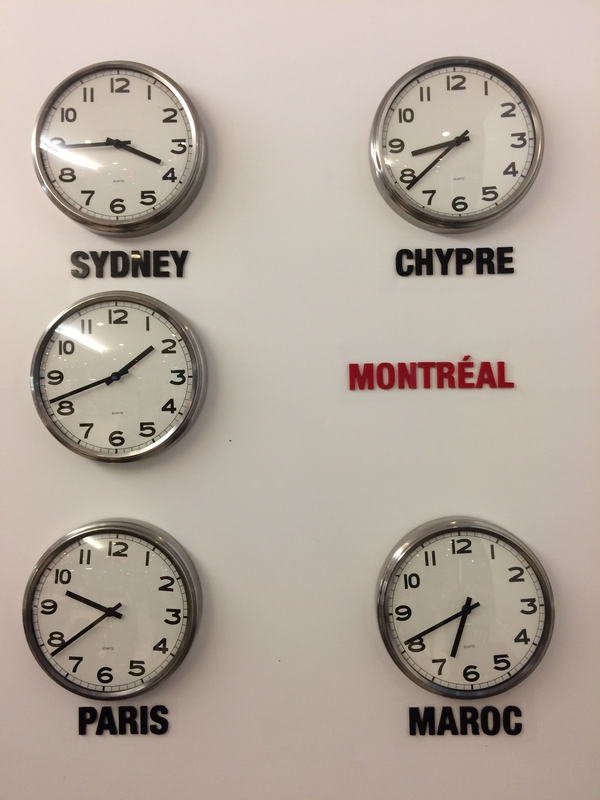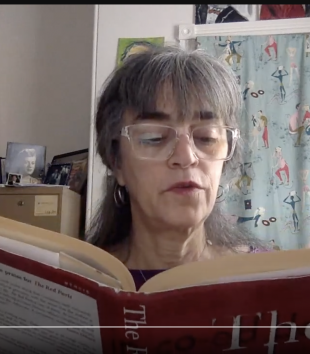Hillary Kaell is Associate Professor of anthropology and religion at McGill University and a faculty fellow at Concordia University’s Centre for Sensory Studies. Her most recent book, Christian Globalism at Home: Child Sponsorship in the United States (Princeton University Press, 2020), won the 2021 Schaff Prize from the American Society of Church History. Her current project explores ecological and spiritual disruptions on the Outer Banks of North Carolina.
You are sitting at the bank, or the bus station, or the post office. As you wait, your eyes wander to the wall. A row of clocks. Each one with an identical, nondescript face—except for the hands, which are conspicuous in their different orientations. One in the afternoon. Eight in the evening. Four in the morning. Below each one block letters read PARIS, TOKYO, SYDNEY. Then your town, with the local time. You are here, others are there. Yet somehow knowable to each other. You could transfer money, or travel, or mail a letter to those people far away. You probably won’t, but you could. A fleeting sensation of globalism embedded in everyday space.
Clocks are the kind of “religion” that spills out beyond the sphere of the sacred. Rows of clocks that evoke utopian, aspirational feelings of global connectedness. These are “religious” feelings in the deepest sense of the term. In the more narrow sense, too, in the West—including the “Americas”—Christians have explicitly contributed to the production of oneness ideologies—the stuff upon which global moods and aesthetics are built.
“Material economies,” at their most basic, are systems of managed resources. Like nearly all the products we buy and sell, clocks combine bits and pieces from many places. Plastic and metal, lithium batteries or hydro-electricity. Mined and produced in one place, assembled in another, shipped in containers and then trains. Consider the management of all these resources across multiple scales. Consider the human labor that goes into creating this symbolically resonant public display—a display so banal that it often goes unremarked. Yet these are material economies that matter because they subtly shape our environment and our aspirations.
These clocks are a material substrate of the Christian globalism I track in my recent book, Christian Globalism at Home.1 This image resonates with questions I ask: How do people cultivate global commitments without actually travelling abroad? How might we think about globalism’s texture and fleeting intensities?
- 1Hillary Kaell, Christian Globalism at Home: Child Sponsorship in the United States (Princeton; Oxford: Princeton University Press, 2020).
Notes
Keywords
Imprint
Author
Hillary Kaell
Year
2022
Type
Object Narratives
Volume
Volume 6: Issue 3 Characterizing Material Economies of Religion in the Americas
Copyright
©
Hillary Kaell
Licensing
Downloads
PDF
DOI
10.22332/mav.obj.2022.14
Citation Guide
1. Hillary Kaell, "Bus Station Clocks," Object Narrative, MAVCOR Journal 6, no. 3 (2022), doi: 10.22332/mav.obj.2022.14.
Kaell, Hillary. "Bus Station Clocks." Object Narrative. MAVCOR Journal 6, no. 3 (2022), doi: 10.22332/mav.obj.2022.14.




